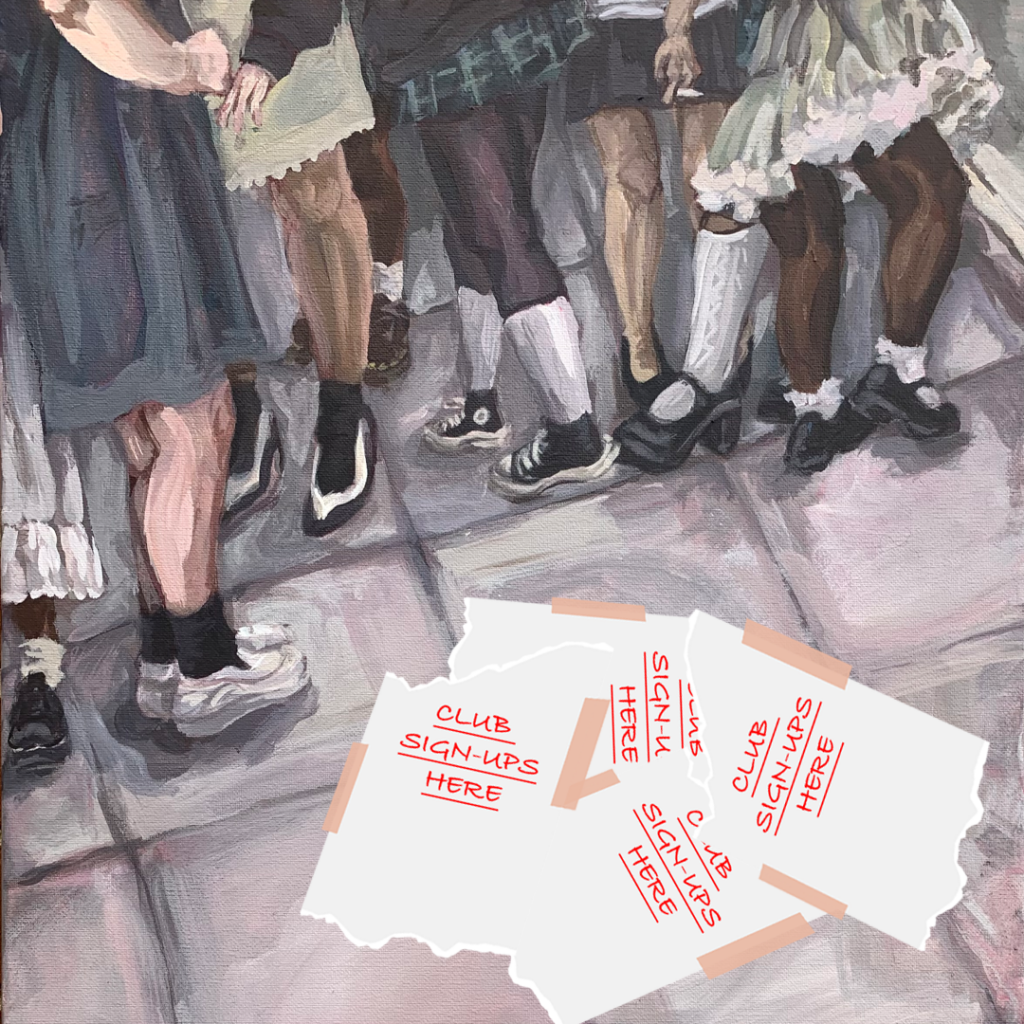
This story is syndicated from The Forum, the newspaper of The Latin School of Chicago in Chicago, IL. The original version of the story ran here.
For many students at my school, the Latin School of Chicago, extracurricular clubs serve as a space for academic growth, collaboration and creativity. Our robust club system allows students to start a club anytime, solely with a faculty advisor and a mission statement.
“For me, the mission statement talks about helping students find their individual passions,” said Director of Student Life and faculty manager of student clubs Tim Cronister.
However, students have begun to abuse this club-making privilege excessively.
Each fall, I’ve witnessed my peers start new clubs with captivating names and flashy descriptions. Yet, come wintertime, those once-alluring clubs are nearly inactive, draining student attention and attendance from meaningful clubs. This trend has shifted our once-thriving extracurricular culture into a scene driven by titles instead of community.
“Everybody feels like they have to be the head of something,” said senior and Co-Head of Model Congress Juliette Katz. “It’s that pressure that we can’t control — when everyone around you is head of something, and you’re not.”
The rise of résumé-driven motivations — fueled by college application anxiety and the polished success stories of peers — has created a misconception that founding a club is more valuable than contributing meaningfully to an existing one. In turn, we’re diluting the impact of the clubs that students and staff have built our of purpose and curiosity.
“Students do get caught up in the craze that this admissions world has become, which unfortunately is cutthroat and intense, and it feels that way at Latin,” said Assistant Director of College Counseling Alex Zotos. “In reality, we want students to be pursuing things that actually bring them joy and excitement.”
The effect doesn’t end in a bullet point. Instead of driving students to build community through curiosity, the clubs’ culture pits students against one another in a competition not just for titles, but for members. The result is a fragmented extracurricular scene built on a shared disdain for other clubs.
While it is important to acknowledge that students start some clubs with genuine intentions, they appear to be exceptions rather than the norm. Simply considering if a club will continue to exist and even thrive after the creator has graduated and moved on serves as a strong litmus test for how much each club is actually filling a need in the student body.
“Everybody knows what the established clubs are,” Katz said. “The clubs that actually get stuff done, they rise to the top, and everybody can realize that.”
Zotos hopes that students will push themselves in new ways that enrich both their lives and their college applications — there’s no mutual exclusivity, he said.
“I think students automatically think there’s only one way to be a leader in high school, and it has to be with an actual title, like co-head, captain, etc,” Zotos said. “There are many ways to be a leader in the community, whether that be taking the time after lunch to pick up trash, or helping to support a student in class that needs some help to share their insights.”
Importantly, for extracurriculars to return to their passion-driven nature, we must, as a student body, understand that leadership comes from being an upstanding individual and community member — no matter what your position is.
